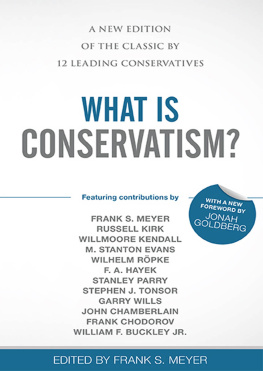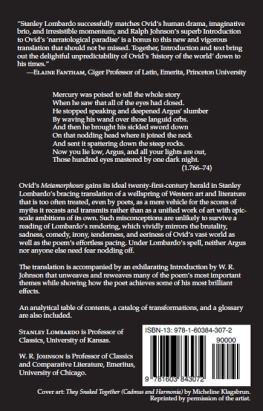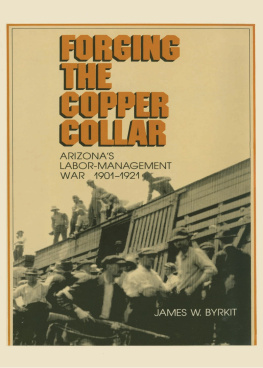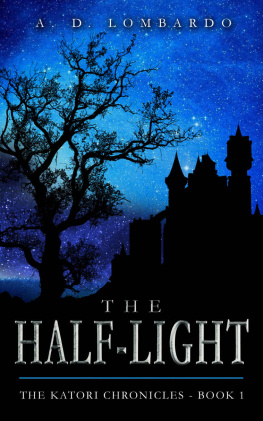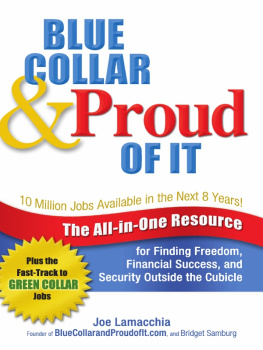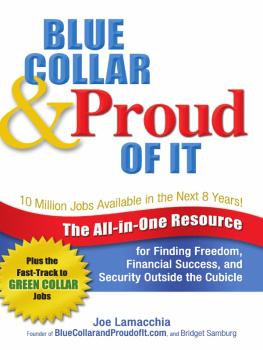Lombardo Timothy J. - Blue-collar conservatism : Frank Rizzo’s Philadelphia and populist politics
Here you can read online Lombardo Timothy J. - Blue-collar conservatism : Frank Rizzo’s Philadelphia and populist politics full text of the book (entire story) in english for free. Download pdf and epub, get meaning, cover and reviews about this ebook. City: Pennsylvania--Philadelphia., Philadelphia (Pa.), year: 2018, publisher: University of Pennsylvania Press, genre: Politics. Description of the work, (preface) as well as reviews are available. Best literature library LitArk.com created for fans of good reading and offers a wide selection of genres:
Romance novel
Science fiction
Adventure
Detective
Science
History
Home and family
Prose
Art
Politics
Computer
Non-fiction
Religion
Business
Children
Humor
Choose a favorite category and find really read worthwhile books. Enjoy immersion in the world of imagination, feel the emotions of the characters or learn something new for yourself, make an fascinating discovery.

- Book:Blue-collar conservatism : Frank Rizzo’s Philadelphia and populist politics
- Author:
- Publisher:University of Pennsylvania Press
- Genre:
- Year:2018
- City:Pennsylvania--Philadelphia., Philadelphia (Pa.)
- Rating:5 / 5
- Favourites:Add to favourites
- Your mark:
- 100
- 1
- 2
- 3
- 4
- 5
Blue-collar conservatism : Frank Rizzo’s Philadelphia and populist politics: summary, description and annotation
We offer to read an annotation, description, summary or preface (depends on what the author of the book "Blue-collar conservatism : Frank Rizzo’s Philadelphia and populist politics" wrote himself). If you haven't found the necessary information about the book — write in the comments, we will try to find it.
Blue-collar conservatism : Frank Rizzo’s Philadelphia and populist politics — read online for free the complete book (whole text) full work
Below is the text of the book, divided by pages. System saving the place of the last page read, allows you to conveniently read the book "Blue-collar conservatism : Frank Rizzo’s Philadelphia and populist politics" online for free, without having to search again every time where you left off. Put a bookmark, and you can go to the page where you finished reading at any time.
Font size:
Interval:
Bookmark:
Blue-Collar Conservatism
Politics and Culture in Modern America
Series Editors: Margot Canaday, Glenda Gilmore,
Michael Kazin, Stephen Pitti, Thomas J. Sugrue
Volumes in the series narrate and analyze political and
social change in the broadest dimensions from 1865 to
the present, including ideas about the ways people have
sought and wielded power in the public sphere and the
language and institutions of politics at all levelslocal,
national, and transnational. The series is motivated by
a desire to reverse the fragmentation of modern U.S.
history and to encourage synthetic perspectives on social
movements and the state, on gender, race, and labor,
and on intellectual history and popular culture.

Frank Rizzos Philadelphia and Populist Politics
Timothy J. Lombardo

Publication of this volume was aided by a gift from Eric R. Papenfuse and Catherine A. Lawrence.
Copyright 2018 University of Pennsylvania Press
All rights reserved. Except for brief quotations used
for purposes of review or scholarly citation, none of this
book may be reproduced in any form by any means without
written permission from the publisher.
Published by
University of Pennsylvania Press
Philadelphia, Pennsylvania 19104-4112
www.upenn.edu/pennpress
Printed in the United States of America on acid-free paper
1 3 5 7 9 10 8 6 4 2
Library of Congress Cataloging-in-Publication Data
Names: Lombardo, Timothy J., author.
Title: Blue-collar conservatism: Frank Rizzos Philadelphia and populist politics / Timothy J. Lombardo.
Other titles: Politics and culture in modern America.
Description: 1st edition. | Philadelphia : University of Pennsylvania Press, [2018] | Series: Politics and culture in modern America | Includes bibliographical references and index.
Identifiers: LCCN 2018002986 | ISBN 9780812250541 (hardcover: alk. paper)
Subjects: LCSH: Rizzo, Frank, 1920-1991. | Philadelphia (Pa.)Politics and government20th century. | ConservatismPennsylvaniaPhiladelphiaHistory20th century. | PopulismPennsylvaniaPhiladelphiaHistory20th century. | MayorsPennsylvaniaPhiladelphia. | Working classPennsylvaniaPhiladelphiaHistory20th century.
Classification: LCC F158.54.R59 L66 2018 | DDC 320.5209748/11dc23
LC record available at https://lccn.loc.gov/2018002986
For Beca

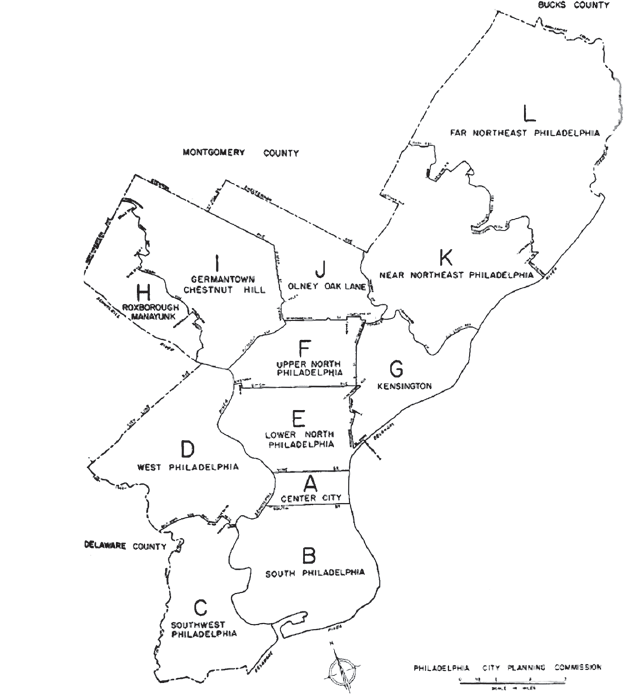
Figure 1. Sectional map of Philadelphia. Philadelphia City Planning Commission, population characteristics: 1960 and 1970, Philadelphia census tracts, 1972.

Frank Rizzo strode into South Philadelphias crowded Columbus Square Playground with little fanfare. He had arrived to hear members of Philadelphias American Federation of Musicians Local 77 give a free concert of Italian arias in honor of Columbus Day. Although he hoped to keep a low profile and said he was only there to celebrate his Italian heritage, the six-foot-two-inch-tall former police commissioner easily stood out in a crowd. Rizzo was also in the final month of his first campaign to become mayor of Philadelphia. The event quickly turned into a pro-Rizzo rally. Chants of We want Frank! drowned out the music as concertgoers clamored around the candidate. Longtime political reporter Sandy Grady said men cheered and women swooned at the sight of him. These things just happen whenever Rizzo goes into an Italian American neighborhood, another reporter commented. Uncharacteristically humbled, Rizzo took the stage to insist the concert continue. When the show ended, Rizzo made a final stop at a nearby tavern. Surrounded by patrons sipping cold pints of Piels draft beer, he raised a toast to the hardworking men and women of South Philadelphia before heading out into the night. When Rizzo was gone, Sandy Grady took an informal poll of the bars patrons, asking how he would fare in the election. Reflecting on the problems facing the city and the nation, one replied that Philadelphia needed an 11th grade dropout to straighten things out. Hell win because he isnt a Ph.D., barfly John Marzano continued. Hes one of us. Rizzo came up the hard way.
Despite his warm welcome in South Philadelphia, Francis Lazaro Rizzo was one of the most controversial figures in the citys history. As a young
Rizzo had been a longtime Republican until he switched parties to accept the job as police commissioner from Democratic mayor James H. J. Tate. Running his own mayoral campaign as a Democrat and the self-proclaimed toughest cop in America, Rizzo scored an impressive victory when he became the first former police commissioner elected mayor of a major American city.who dropped out of high school and worked his way up to the highest position in Philadelphia.
Frank Rizzo was perhaps the archetypal example of late twentieth-century urban, white ethnic, populist conservatism and the quintessential backlash politician of the 1960s and 1970s. To his critics, Rizzo was little more than a villain. They saw him as an enemy to civil rights, a bully, a racist, a sexist, a homophobe, and a mean-spirited patriarchal figurehead of a regressive political order. He was all those things. But Frank Rizzos politics and legacy were far more complicated than the caricature that emerges from his long record of outlandish behavior and offensive statements. More importantly, Rizzos supporters never saw him as a villain. While Rizzos critics have largely succeeded in writing his legacy, their grave depictions do not allow for a thorough understanding of the people who called him one of us or the politics they created and championed. Frank Rizzo was loved as much as he was hated. The admiration he inspired among blue-collar white ethnics cannot be reduced to a simplistic backlash narrative.
This is not a biography of Frank Rizzo. Although his rise and fall is central to the story this book tells, other writers have more clearly detailed Rizzos life and career. Instead, this book uses Rizzo, his allies, and his city to examine broader changes in modern America. In addition to Rizzo, it is a book about the evolving politics of his blue-collar white ethnic supporters. Their abandonment of urban and New Deal liberalism is at the core of this book, but it is also about the long-standing blue-collar populism and political sensibilities that they created, developed, and maintained in the long postwar era. It argues that the resultant blue-collar conservatism arose from their mutually reinforcing promotion of law-and-order conservatism and selective rejection of welfare liberalism. While the racial upheavals of midcentury urban America were central to the rise of blue-collar conservatism, this book also shows how working- and middle-class white ethnics in Frank Rizzos Philadelphia imbued their politics with blue-collar class discourses and identities.
The stories recounted herein are part of a larger whole that explain the United States turn to the right in the late twentieth century. Yet the subtleties of the specific blue-collar politics presented call into question the traditional bifurcations of political history and political identity. Real people rarely fall into neat categories established by scholars and critics. The white, blue-collar supporters of Frank Rizzo steadily moved to the right over the course of the postwar decades. While they surely would have rejected the label liberal at the end of their political transformation, not all of them would have readily accepted the label conservative. With few exceptions, the subjects of this book did not become conservative activists. Many blue-collar Philadelphians who began the postwar era in the Democratic Party shifted to the Republican Party by the 1980s, but not all of them. Shifting political affiliation is a part of this story, but many blue-collar whites remained in the Democratic Party and contributed to its subtle move to the right between the late 1960s and 1990s. This books use of the term blue-collar conservatism, therefore, is not meant to indicate a hard-set political ideology. Instead, the development of a specifically urban, blue-collar political sensibility examined in this book demands a reconsideration of the dichotomy between the right and left. Its ambiguities require a more nuanced conception of political categorization. They also demand the acknowledgement of categories that belie the strict polarization of traditionally understood liberal and conservative political identity.
Next pageFont size:
Interval:
Bookmark:
Similar books «Blue-collar conservatism : Frank Rizzo’s Philadelphia and populist politics»
Look at similar books to Blue-collar conservatism : Frank Rizzo’s Philadelphia and populist politics. We have selected literature similar in name and meaning in the hope of providing readers with more options to find new, interesting, not yet read works.
Discussion, reviews of the book Blue-collar conservatism : Frank Rizzo’s Philadelphia and populist politics and just readers' own opinions. Leave your comments, write what you think about the work, its meaning or the main characters. Specify what exactly you liked and what you didn't like, and why you think so.


